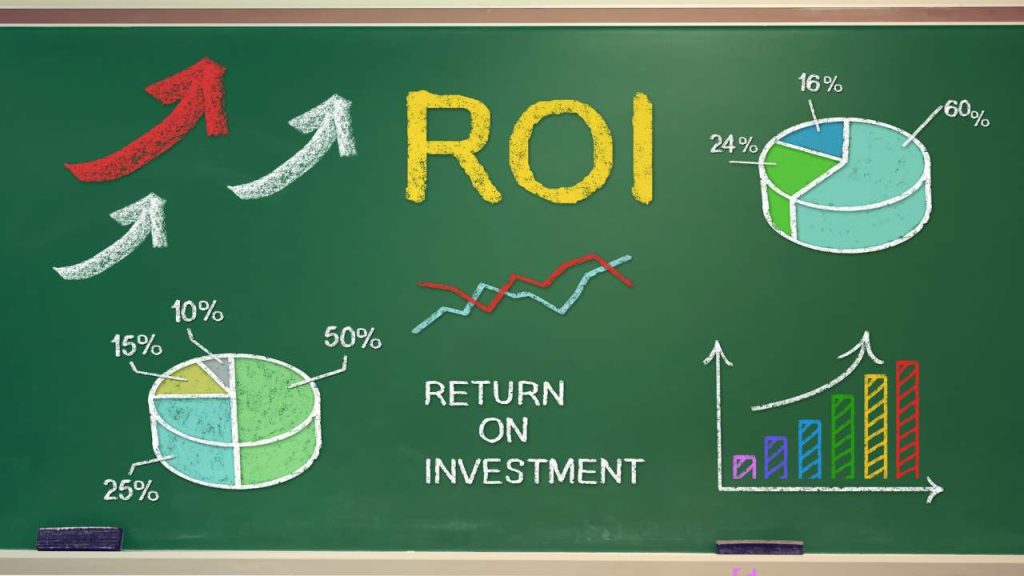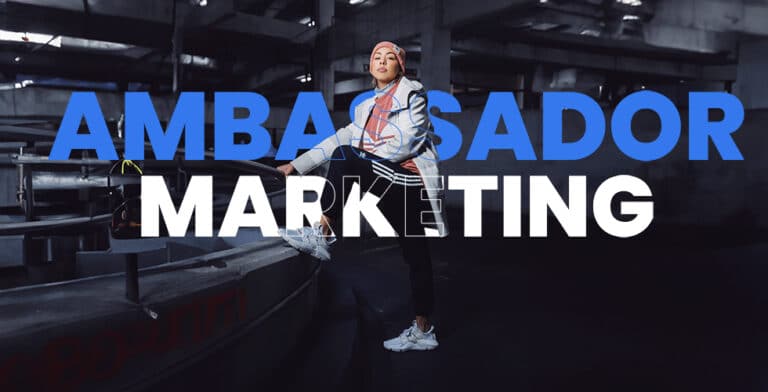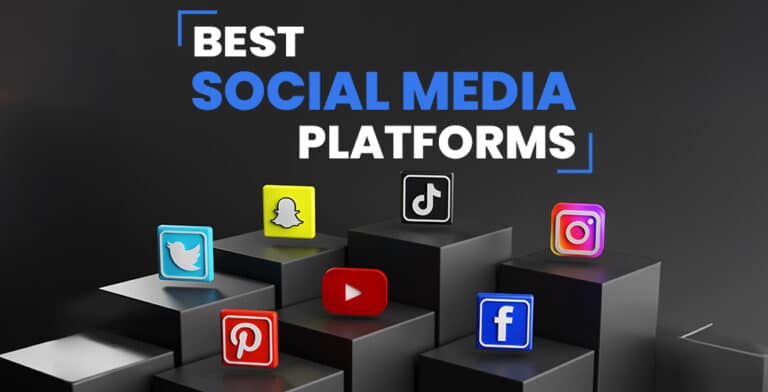Influencer marketing has become an indispensable strategy for e-commerce brands looking to expand their reach and drive sales.
Nowadays, marketers find better returns on investment from influencer marketing campaigns comparable to other channels. Additionally, over 50% of brands leveraging influencers are e-commerce businesses.
The power of influencer marketing lies in the credibility and reach of social media personalities who can connect brands with target audiences that find online recommendations highly trustworthy. In fact, 61% of consumers trust influencers more than direct brand promotions.
By strategically collaborating with relevant influencers, e-commerce businesses can tap into captive niche communities and build lasting brand advocacy.
This guide provides e-commerce brands with comprehensive guidance for executing a high-impact influencer marketing strategy.
What Is E-commerce Influencer Marketing?
E-commerce influencer marketing refers to collaborations between online retail brands and influential social media personalities to promote products and services.
The goal is to leverage the trust and reach of relevant influencers to boost brand awareness, engage target audiences, and drive sales growth.
In essence, e-commerce brands identify and partner with individuals who wield influence over specific niche communities that align with the brand’s target customer profile and buying interests.
Popular influencers like bloggers, industry experts, everyday consumers, and even celebrities can provide authentic endorsements for products and help convert their followers into customers.
Influencers promote products through creative visual content and storytelling on social platforms like Instagram, Facebook, YouTube, and more.
Example content includes stunning product imagery and reviews, unboxing videos, tutorials, and endorsements woven into narratives about their lifestyles and interests. The focus is on compelling yet natural integrations optimized for conversion rather than hard sales.
The goal of e-commerce influencer marketing is to build lasting brand affinity and relationships through credible third-party endorsements.
Done strategically, it helps brands rapidly expand reach, boost engagement, increase website traffic, and drive measurable sales with target audiences.
Tracking sales and engagement metrics allows the refinement of partnerships and campaigns over time.
Right Platform For E-commerce Influencer Marketing
When embarking on an influencer marketing campaign, carefully selecting the right social media platform is key to effectively reaching your target demographic and achieving your goals, whether awareness, engagement, or sales.
Evaluate platform statistics and your audience behavior to determine optimal fits.

Instagram Influencer Marketing
With over 90% of its users under 35, Instagram offers an unparalleled way to tap into younger Millennial and Gen Z audiences. Its cutting-edge features like Stories lend themselves to creative branded content that followers eagerly consume and share.
While the platform is geared more towards discovery and micro-conversions, the highly engaged communities can become loyal brand advocates over time through thoughtful influencer partnerships.
Snapchat Influencer Marketing
Given Snapchat’s dominance among the 18-24 demographic, with over 80% penetration, it allows specialized targeting of the youngest segment of potential consumers.
The real-time, ephemeral nature of content lends itself well to product launches, brand activations, and limited-time offers that create an urgent, insidery buzz.
While traffic and attribution remain a challenge, Snapchat influencer campaigns can spike awareness and interest for e-commerce brands catering to this cohort.
Twitter Influencer Marketing
A mainstay for reaching Millennials, Twitter provides an optimal portal for initiating relevant conversations and forging connections with consumers open to discovery.
Over a third of 18-29-year-olds are on the platform, primed for real-time storytelling and updates from brands they follow and trust.
With over 25% of auto buyers influenced by Twitter content, the platform demonstrates the potential for big-ticket and considered purchases.
YouTube Influencer Marketing
As the second largest search engine and #1 for video content, YouTube wields tremendous influence, with 25-44-year-olds spending the most time watching.
While female users are the minority, the massive viewer base allows expansive reach, especially alluring for e-commerce brands focused on video-centric tutorials, demonstrations, and reviews.
The platform drives both powerful branding through visual storytelling as well as direct traffic and conversions.
4 Types of Influencers for E-commerce Marketing
Influencer marketing relies on collaborations with prominent social media users to reach target consumers.
E-commerce brands can choose between influencer types based on variables like budget, audience size, and campaign goals. Mapping partnerships to an overarching strategy drives optimal marketing ROI.

Nano Influencer
Nano influencers have under 10k followers but boast high engagement levels. Their specialization in niches allows precise demographic targeting and product showcasing to genuinely interested communities without straining limited budgets.
Micro-Influencer
With 10k-100k followers centered around specific interests and lifestyles, micro-influencers combine authenticity with reach. They create content that nourishes personal connections with their audience, converting followers into brand evangelists through thoughtful recommendations.
Macro Influencer
Having solidified their industry leadership status, macro influencers wield media clout across 100k-1 million followers. Tapping into these vast networks spanning various interests demands heftier investments but also fuels radical awareness spikes and consumer trust leveraging their authority.
Mega Influencer
The mega influencer group encompasses celebrities with over 1 million reach. While maximizing exposure across fragmented demographics, lower engagement rates per follower and prohibitive costs make them risky propositions for all but the most strategic brand collaborations.
How to Choose the Right Influencer for E-commerce Business
Choosing influencers for an e-commerce business, much like other marketing strategies demands thoughtful planning. Here are some ways to facilitate a successful collaboration.

Identify Your Goals and Target Market
Identifying your goals and target market is the cornerstone of a successful influencer strategy for your e-commerce business. Clearly defining your objectives ensures that your influencer marketing aligns with your overall business goals.
To do this effectively, develop buyer personas that delve into your target audience’s demographics, interests, and aspirations. By understanding who your audience admires and follows, you gain valuable insights into the influencers who resonate with them.
This strategic approach not only keeps your influencer marketing on the right track but also establishes a strong connection between your brand and the influencers who genuinely appeal to your ideal customers.
Consider Influencer’s Following
Considering an influencer’s following is crucial in finding the right fit for your business. Undoubtedly, a substantial follower count enhances your brand’s reach and potential customer acquisition.
Whole numbers matter, it’s essential to look beyond mere quantity. Delve into the kind of impact you aim for in your target market. Are you seeking widespread brand awareness, or do you want to engage deeply with a specific community?
By answering these questions, you can refine your search, ensuring that the influencer you choose aligns not just in numbers but in the quality of connection, delivering a more effective and targeted collaboration for your e-commerce business.
Focus on Relevance
Emphasizing relevance is paramount in selecting influencers for your brand. Regardless of your products or niche, aligning with influencers who share your values and interests is crucial.
Imagine your products featured on an influencer’s platform – will their endorsement resonate with their audience?
Choosing influencers pertinent to your industry is pivotal for a successful marketing campaign. Steering clear of collaborations with influencers outside your brand’s relevance is essential to avoid costly mistakes.
For instance, partnering with a gamer influencer for food products may not yield the desired results. While influencers with massive reach may be tempting, their alignment with your brand values and target market holds greater significance for the success of your e-commerce business.
Check Engagement Rate
Checking the engagement rate is a crucial step in influencer selection for your business. Analyzing likes and comments on an influencer’s content provides insight into audience responsiveness.
To manually assess engagement, add the total likes and comments on a post, divide by the influencer’s follower count, and then multiply by 100 for the percentage engagement rate.
Beyond numbers, consider how influencers interact with their audience – those responding to most comments signify a strong bond with followers.
This connection is advantageous for your business, as followers are more likely to trust and be interested in recommendations from influencers who actively engage with them.
Choose Influencers with Quality Content
Opt for influencers who deliver quality content, steering clear of those who produce mediocre material. Influencers driven by passion rather than purely financial motives are better positioned to effectively showcase your products and services.
Since the content they create serves as a representation of your brand, selecting influencers capable of producing genuine and captivating content is essential.
Ensure that the influencers you choose align with your brand values and can create content that not only resonates with their audience but also authentically highlights the value of your products and services.
By prioritizing quality over quantity, you enhance the likelihood of a successful and impactful collaboration for your e-commerce business.
Check Audience Quality
Ensure you check the quality of an influencer’s audience to avoid falling prey to fake followers. On platforms like Instagram, some influencers resort to deceptive practices, creating fake engagements to attract brands.
To identify red flags indicating fake followers, look for –
- poorly made content with substantial followings,
- unusually rapid follower acquisition on a new account,
- a follower count surpassing the following count,
- followers with no profile pictures or backgrounds and odd names,
- spammy and generic comments, and
- an immediate surge in likes after content publication.
Being vigilant about these signs will help you steer clear of fake influencers and safeguard your business from potential disadvantages.
Track the Results of Your Collaboration
The trackable nature of digital marketing is to monitor the outcomes of your collaboration with influencers. Utilize this feature to adapt and refine your influencer marketing strategies as needed.
Assess the Return on Investment (ROI) of your influencer marketing campaign to gauge its effectiveness. If the chosen influencer falls short of delivering the anticipated results, swift action can be taken to explore alternative influencers better aligned with your brand.
Constantly tracking and analyzing the results ensures that your influencer partnerships align with your business goals, allowing you to make informed decisions and optimize your approach for maximum impact.

Wrapping Up
In conclusion, for e-commerce business owners aiming for substantial growth and remarkable sales, now is the opportune moment to leverage the impact of influencer marketing.
The surge in online stores due to the pandemic has created a vast digital market, ranging from small businesses to established offline retailers.
Remember, influencers don’t always need to be celebrity figures; consider engaging relevant micro-influencers.
With this guide, you will be able to initiate or enhance your influencer marketing campaign, propelling your e-commerce business toward the recognition and sales it rightfully deserves.




